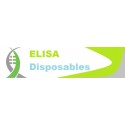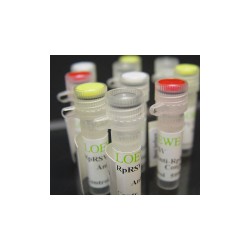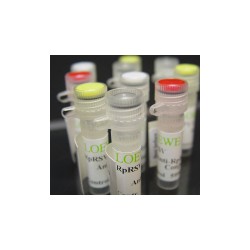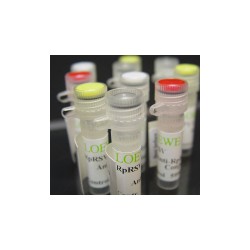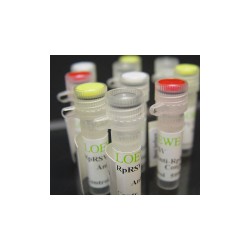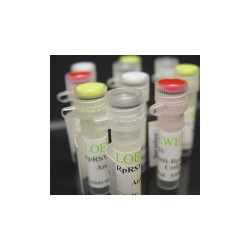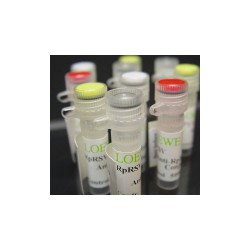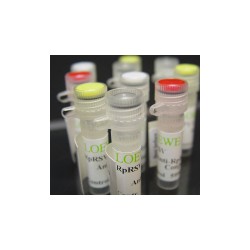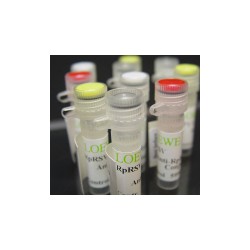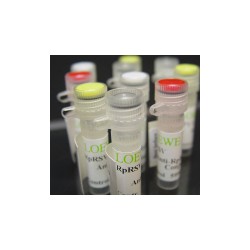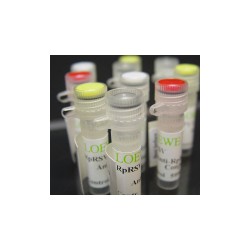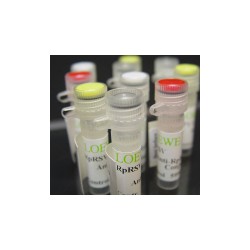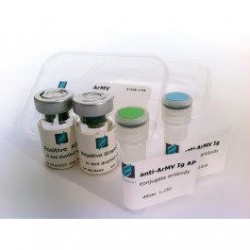ELISA
ELISA (enzyme-linked immunosorbent assay) is a plate-based assay technique designed for detecting and quantifying peptides, proteins, antibodies or hormones. In an ELISA, an antigen must be immobilized to a solid surface and then complexed with an antibody that is linked to an enzyme. Detection is accomplished by assessing the conjugated enzyme ...
ELISA (enzyme-linked immunosorbent assay) is a plate-based assay technique designed for detecting and quantifying peptides, proteins, antibodies or hormones. In an ELISA, an antigen must be immobilized to a solid surface and then complexed with an antibody that is linked to an enzyme. Detection is accomplished by assessing the conjugated enzyme activity via incubation with a substrate, to produce a measureable product. The most crucial element of the detection strategy is a highly-specific antibody-antigen interaction. ELISAs are typically performed in 96-well (or 384-well) polystyrene plates, which will passively bind antibodies and proteins. It is this binding and immobilization of reagents that makes ELISAs so easy to design and perform. Having the reactants of the ELISA immobilized to the microplate surface makes it easy to separate bound from non-bound material during the assay. This ability to wash away nonspecifically bound materials makes the ELISA a powerful tool for measuring specific analytes within a crude preparation.
ELISA There are 222 products.
-
-
Impatiens Necrotic Spot Tospovirus. INSV...
Assay type: DAS ELISA using polyclonal antiserum from rabbit.
-
-
Johnson Grass Mosaic Potyvirus. JGMV...
Assay type: DAS ELISA using polyclonal antiserum from rabbit.
-
Lettuce Mosaic Potyvirus. LMV (Lactuca...
Assay type: DAS ELISA using polyclonal antiserum from rabbit.
-
Lettuce Necrotic Stunt Tombusvirus. LNSV
Assay type: DAS ELISA using polyclonal antiserum from rabbits.
-
-
-
-
Mirafiori Lettuce Big-Vein Ophiovirus. MiLBVV
Assay type: DAS ELISA using polyclonal antiserum from rabbit.
-
Moroccan Watermelon Mosaic Potyvirus. MWMV
Assay type: DAS ELISA using polyclonal antiserum from rabbit.
-
Myrobalan Latent Ringspot Virus (MLRSV)
Product components DAS ELISA KIT Myrobalan Latent Ringspot Virus Capture polyclonal – conjugate polyclonal - positive and negative controls 500 tests code: K-23B 1000 tests code: K-23A






